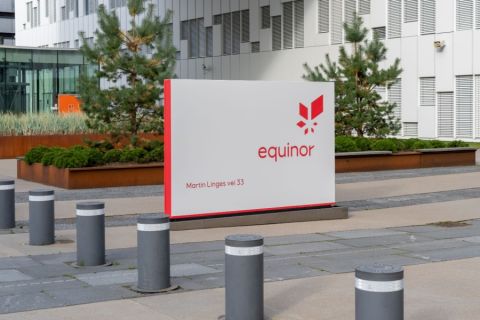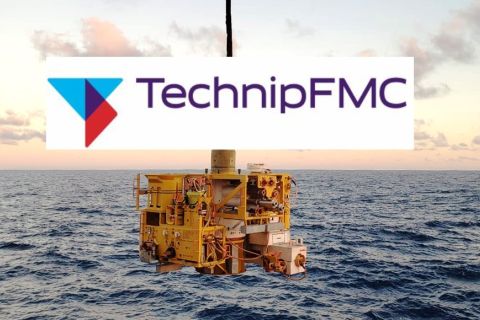According to the oil and gas industry’s representative body Oil & Gas UK in its latest annual survey, nearly US $150 billion is embedded in operators’ plans for exploration, development, and production projects on the UK Continental Shelf (UKCS).
As the highest forecast investment level for more than 30 years, this is largely due to the industry responding to recent growth-focused tax changes by the government, with nearly $20 billion forecast to be spent this year alone.
Malcolm Webb, the CEO of Oil & Gas UK, is currently acting as chairman of the biennial SPE Offshore Europe 2013 conference and exhibition in Aberdeen, Scotland, due to take place in September.
Webb, a lawyer by profession, has been involved in the UK sector since the 1970s when he worked at Burmah Oil, later holding roles for the British National Oil Corp., Charterhouse Petroleum, and PetroFina before joining Oil & Gas UK in 2004. As a result, he has seen both good and bad times in the North Sea and further afield, but right now he is in a positive mood.
Challenges
“I’m definitely more optimistic now,” Webb said. “We have a range of challenges in front of us – the discoveries are getting smaller, the water is getting deeper, and the reservoirs are getting more complex.
“But at the same time the UK government understands the situation and has recently given us certainty over the treatment of decommissioning assets. It has put in place allowances that give incentives for people and companies to invest here.”
He highlighted recent major projects that have been given the go-ahead by operators and approved by the UK authorities, such as Statoil’s Mariner field in the UK sector. This heavy oil field will see an estimated $7 billion invested and is the sector’s largest offshore development in more than a decade.
$7 billion Mariner project
Mariner was discovered in 1982, but production was delayed due to technical challenges in extracting the heavy oil. It also was delayed due to Statoil’s decision to suspend activity two years ago when the UK government, without warning, suddenly raised supplementary charges in 2011 with a windfall tax. The operator only restarted progress after an industry uproar (from entities including Oil & Gas UK) quickly led politicians to rethink their plans and offer tax breaks such as the Ring Fence Expenditure Supplement for marginal fields.
“The government does now get it,” Webb said. “They are with us, and they understand the importance of the product. Oil and gas supplies around three quarters of the energy that this country uses, and the DECC [Department of Energy and Climate Control] says it will stay higher than 70% until into the 2040s.”
He also praised the government’s “groundbreaking commitment” to provide certainty on decommissioning tax relief, which has now prompted global companies and independent businesses to take a fresh look at the UK offshore sector as an investment destination. This already has resulted in a new wave of investment. “It is crucial that we sustain this momentum in the years ahead,” he said.
Webb added that there must be “a national imperative to maximize production” and that the industry has responded already. “We think we are going to see a growth in production. But we are still leaving more oil in place than we produce, so that is an issue that continues to require continued attention.”
Offshore Europe
That brought Webb on to the Offshore Europe conference. The show, which will mark its 40th anniversary this year, is now recognized as a global platform for the upstream industry and is much changed from its early North Sea-focused roots.
“We have leading speakers from within the industry, the government, and other stakeholders, and we are very much looking ahead, which is why the overall theme is ‘the next 50 years.’ It’s extremely significant that the UKCS will see a record capital spend this year. The industry is very much alive.”
He described the strong resurgence in activity as clear evidence that the offshore industry has an important future ahead of it, “with planned projects we already know about spanning the next 50 years.” According to Oil & Gas UK’s survey of its 40-plus members, those projects include eight lying west of Shetland, 23 in the central North Sea, 13 in the northern North Sea, and six in the southern North Sea or Irish Sea. These potential new developments comprise 2.9 Bboe of recoverable reserves.
However, great opportunities also bring great challenges, with the Offshore Europe conference sessions set to embrace commercial, employment, operational, safety, and environmental aspects as well as the policy and regulatory framework in which the industry operates. “This will be the definitive event for our industry as it moves through the 21st century,” Webb said.
The energy mix
Subjects covered by various panel sessions include the role of oil and gas in the future energy mix, North Sea drilling and industry progress since Macondo, technology, and decommissioning. The energy mix session will be particularly wide-ranging, covering the global energy outlook, the future of transport fuels, the unconventional gas revolution in the US, and a look forward at unconventionals in Europe. It also will address the role of technology and partnerships in the future of the European offshore oil and gas industry.
The session on Macondo will review the reactive and regulatory initiatives that have emerged since the tragic incident in 2010. The oil and gas industry in the US, UK, and around the world has carried out a significant number of investigations, reviews, and initiatives to address findings from the incident and prevent any future recurrences of this scale and nature. Webb pointed out how the preventive initiatives taken by companies, cross-industry bodies, and regulators have resulted in the development of high-quality operational guidelines and procedures.
“We are seeking to raise the profile of the industry and the event as a whole. Several surveys have consistently shown that the public thinks the UK now imports the majority of its energy. We need to correct that perception,” he added. “We have an internationally renowned supply-chain spread right across the UK – there are more than 30,000 jobs offshore but around 440,000 in the support infrastructure. If our supply chain is going to prosper, it has to compete and perform against the best in the world. The UK has an outstanding reputation as a global center of excellence, with a leadership role in areas such as subsea, and this will be evident at the event.”
Recommended Reading
Equinor Releases Overview of Share Buyback Program
2024-04-17 - Equinor said the maximum shares to be repurchased is 16.8 million, of which up to 7.4 million shares can be acquired until May 15 and up to 9.4 million shares until Jan. 15, 2025 — the program’s end date.
From Restructuring to Reinvention, Weatherford Upbeat on Upcycle
2024-02-11 - Weatherford CEO Girish Saligram charts course for growth as the company looks to enter the third year of what appears to be a long upcycle.
TechnipFMC Eyes $30B in Subsea Orders by 2025
2024-02-23 - TechnipFMC is capitalizing on an industry shift in spending to offshore projects from land projects.
NOV's AI, Edge Offerings Find Traction—Despite Crowded Field
2024-02-02 - NOV’s CEO Clay Williams is bullish on the company’s digital future, highlighting value-driven adoption of tech by customers.
Patterson-UTI Braces for Activity ‘Pause’ After E&P Consolidations
2024-02-19 - Patterson-UTI saw net income rebound from 2022 and CEO Andy Hendricks says the company is well positioned following a wave of E&P consolidations that may slow activity.





